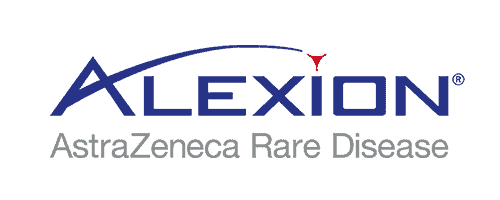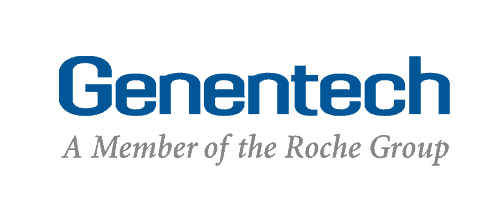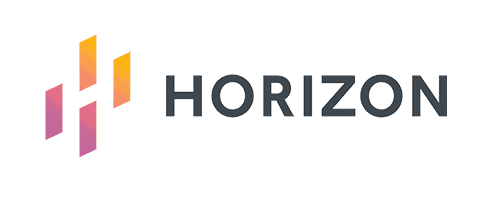A Successful 2021 Rare Neuroimmune Disorders Symposium (RNDS)!
This past weekend, we held our biennial Rare Neuroimmune Disorders Symposium (RNDS)! The 2021 RNDS was hosted by SRNA , Massachusetts General Hospital, UT Southwestern Medical Center, Johns Hopkins Medicine, Harvard Medical School, Children’s Health Dallas, Johns Hopkins Myelitis and Myelopathy Center, MGH NMO Clinic and Research Laboratory, and the CONQUER Program. This year, the event was hosted virtually to ensure the safety of all participants. Forty-two speakers, eleven staff members, and 178 attendees gathered to discuss various topics regarding rare neuroimmune disorders.
Day 1 of the RNDS began with an introduction from SRNA President, Sandy Siegel. In his talk, Sandy stressed the importance of education and the evolving nature of research on these disorders. The day then divided into three different tracks. Track 1 was for those who were newly diagnosed with a rare neuroimmune disorders, Track 2 was for those who were diagnosed over two years ago, and Track 3 was for parents and caregivers of children with one of these disorders. Dr. Blackburn gave an overview of the diagnostic tests given to get to a diagnosis of ADEM, AFM, MOGAD, NMOSD, ON, and TM. Dr. Michael Levy discussed the long-term considerations of rare neuroimmune disorders. He answered questions about the possibility of relapses, long-term care, treatment options, and ongoing research. Dr. Sarah Hopkins gave an overview of several neuroimmune disorders in children, including descriptions of condition presentation, prognosis, and treatment options.
Next, disorder-specific talks were given for ADEM, AFM, MOGAD, NMOSD, and TM. Each of the speakers discussed the presentation, diagnosis, and acute treatments for each disorder. This was followed by talks on “Acute treatments at onset and relapse” and “Identifying relapses vs. temporary worsening of symptoms”, and a presentation by Cara Amos of Alexion, AstraZeneca Rare Disease, sharing an overview of Soliris, an FDA-approved treatment for the management of NMOSD. She discussed clinical trial results, eligibility criteria, patient support programs, and more.
Participants in Track 1 heard talks on “Transitioning from hospital to home”, “Early rehabilitation strategies”, and “Meet an occupational therapist and physical therapist: A conversation”. Track 2 contained talks on “Understanding MOG and AQP-4 antibody testing”, Ongoing rehabilitation strategies”, and “Disability benefits and vocational rehabilitation”. Participants in Track 3 attended talks on “Learning to understand your child’s symptoms”, “Pediatric rehabilitation strategies and surgical interventions”, and “Transitioning from pediatric to adult care: a conversation.” The day concluded with all attendees coming together for presentations on “Adaptations: Mobility devices, driving, and home modifications” and “Building your health care team”.
The second day of the RNDS began with a talk entitled, “What is neuropathic pain, numbness, and tingling?” from Dr. Ram Narayan. Dr. Narayan discussed the multiple mechanisms that can cause neuropathic pain, clinical features, and how a diagnosis is made by learning more from one’s history and a clinical exam. He talked about multiple methods of managing this very distressing symptom that causes a significant change in a person’s quality of life, including medicine, cannabinoids, devices, scrambler therapy, and the role of cognitive behavioral therapy in management of pain. Next, Dr. Lana Harder gave a talk on “The CNS connection and psychosocial aspects of being diagnosed with ADEM, AFM, MOGAD, NMOSD, ON, or TM”, in which she shared several research studies that looked at cognitive function in MS and TM, and compared fatigue and symptoms of depression as well.
We next hosted a panel of our non-profit partners, including representatives from SRNA, The Sumaira Foundation for NMO, The Guthy-Jackson Charitable Foundation, The MOG Project, The Cody Unser First Step Foundation, the Acute Flaccid Myelitis Association, and the Connor B. Judge Foundation. We then had talks on symptom management, including “UTIs, catheters, and incontinence”, “Identifying and managing fatigue”, “Solutions to managing spasticity in kids and adults”, and “How to manage constipation and prevent accidents: Bowel management strategies”. Dr. Tanuja Chitnis then gave a talk on “Pregnancy and a rare neuroimmune diagnosis”, in which she discussed how pregnancy affects someone with a rare neuroimmune disorder, how a rare neuroimmune disorder can affect pregnancy, safety surrounding delivery and breastfeeding, and treatment considerations during pregnancy.
Following these talks, we heard from Dr. John Chen for a presentation on “Management of vision after optic neuritis”. The marketing director at Genentech, Jason Kohari, then helped us learn about ENSPRYNG, an FDA-approved treatment of NMOSD in adults with a particular antibody – patients who are anti-aquaporin-4 or AQP4 antibody-positive. He shared how it works, their patient support program, and safety information. We ended Day 2 with talks on “Aging with a rare neuroimmune disorder” and a panel discussion on “Vaccinations after a diagnosis of a rare neuroimmune disorder.”
The last day of the RNDS focused on research. We began the day with a CDC AFM Biorepository and Moderated Roundtable on AFM Research, with a question and answer session. Dr. Carlos Pardo was joined by Drs. Nischay Mishra, Amy Rosenfeld, Eileen Yee, and Janell Routh to discuss research currently being conducted in AFM and what we have learned about AFM so far. The speakers stressed the importance of participating in research to provide better outcomes for future cases and answered questions from the community. Next, Dr. Benjamin Greenberg gave a presentation on “Research 101 – learn about the process of basic science and clinical research”. We then had talks on “Anti-MOG Associated Disorder: Insights Into Neuroplasticity and Opportunities for Repair”, “Assessing the impact of social disparities of health on disability and access to care in NMOSD patients”, and “Nutrition, Genetics, and stem cells in rare neuroimmune disorders”. GG deFiebre, SRNA’s Director of Research and Programs, gave a presentation on research conducted by SRNA, including an overview of the SRNA Registry, a study on vaccination behavior after a rare neuroimmune disorder diagnosis, and a study on the COVID-19 pandemic’s impact on our community.
We heard talks on “Research on rare neuroimmune disorders and rheumatologic diseases”, “CIRCLES and SPHERES NMOSD Studies”, and “APERTURE: What have we learned about ADEM?” Dr. Kyle Blackburn, a former James T. Lubin Fellow, then gave a presentation on “CORE TM and AFM”, which contained an overview of the CORE TM study, including the goal of the study and how someone can participate. The day ended with a panel discussion on “COVID-19 and rare neuroimmune disorders”. Drs. Michael Levy, Carlos Pardo, and Benjamin Greenberg discussed what is currently known about COVID-19 and rare neuroimmune disorders, including risk factors for people with a rare neuroimmune disorder, whether COVID-19 infection can cause a relapse or new inflammatory event, and data on long-haul symptoms following COVID-19 infection. The experts also talked about the COVID-19 vaccines and considerations for people with rare neuroimmune disorders who are making decisions about their care.
Throughout the event, attendees were also given opportunities to connect with one another through the “Networking” feature. Participants were matched with another guest and given a few minutes to chat and exchange contact info if desired, before being matched with another participant. We received positive feedback from those who networked, and many connections were made.
We are so thankful for all who joined us for the 2021 RNDS! We are incredibly grateful to all of our community members who attended, our speakers for their time and expertise, our wonderful non-profit partners, and our generous sponsors. We enjoyed learning from our amazing speakers and from the community members who shared their stories. We hope all who attended learned more about these disorders, connected with others who share similar experiences, and left the RNDS feeling empowered.
All presentations from the 2021 RNDS were recorded and are now available on our YouTube page. You can view talks from Day 1 here, Day 2 here, and Day 3 here. We are working on getting the closed captioning and transcriptions prepared, and we will add them to the videos once they are ready. We will also add the videos to the Resource Library on our website in the coming days.
Until next year!
2021RNDS was supported in part through education grants by
* The Executive Committee of SRNA with the medical and scientific council determines the content and topics of the event. Supporters are not able to influence the education program.








